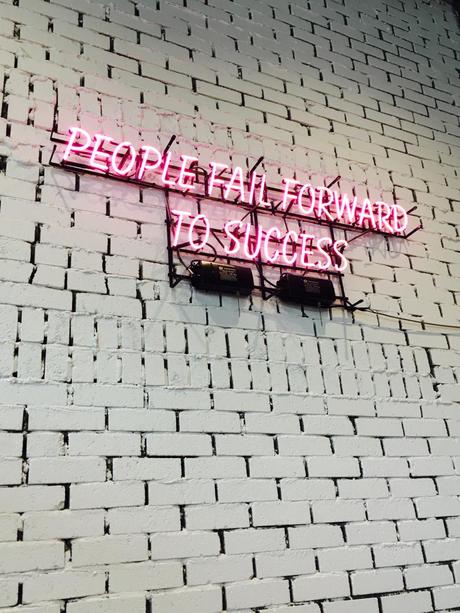
We've been taught to hide our failures. There's some irony to this considering each of us fails far more than we succeed on a daily basis. I'm not just talking about big moments like job interviews or sports competitions either. Every day, we take a variety of calculated risks based on the best available information at the time. Sometimes it works out, and sometimes we don't get the end result we're looking for despite our best efforts. What distinguishes not cleaning out your inbox by the end of the day from not getting that promotion you've been dreaming about for months is simply the weight we place on that particular failure. However, in both situations, we have the opportunity to reset our goals and try again. If these failures are happening so frequently in our lives, then why do we feel the need to hide them at all costs?
A significant part of the problem is that we think everyone else around us is succeeding far more than we are at everything. As humans, we regularly over-estimate the success of others in all facets of our lives. Other people make more money than us, have happier relationships and families than us, find their jobs more fulfilling, are healthier than us, and the list could go on and on. This bias has only been accentuated by the "success theater" of social media in recent years. We've been taught to share our successes and happiest moments while avoiding sharing anything that might give others reason to critique us. We engage daily with others' well-curated but incomplete lives online and assume that the rest of the puzzle is just as joyful and successful.
If we stopped to think about it, we'd realize it's not. It can't possibly be. Outside of Hollywood, nobody is that lucky. We all find failure every single day in things big and small, and these moments help us grow, learn, and create the capacity for empathy. It's this last piece, empathy, that I find particularly telling. Think about the times when someone has shared something challenging with you. After the "I'm sorry" and the hug, your inclination was probably to to share a "me too" story. Our minds immediately go to similar experiences we've had as a way to understand what the other person is feeling. Our failures nurture our capacity for empathy.
This mismatched sense of self and others has given rise to the prevalence of imposter syndrome. We look around at all the far more successful people and assume we don't actually belong. Our accomplishments, talent, energy, and commitment can't possibly match that of our colleagues. We second guess ourselves for taking a vacation day because we assume everyone else will be working hard and doing great things without us. Vacation day use has gone up considerably during the pandemic, but Americans are still leaving vacation days on the table. We convince ourselves we can't possibly leave for very long or the whole operation will fall apart. If you leaving for a week-long vacation causes the whole operation to crumble, than we need to have a different type of conversation!
So, where does this disconnect leave us? We need to discuss our failures more openly and more publicly. Why not add those grants you didn't receive to your CV? Why not list the paper you didn't get published? Why not talk about the chances you took that didn't work out when mentoring young people? Not only does talking more openly about our failures help to normalize them, but it also opens up more doors for discussing lessons learned and capacity for resilience in the face of obstacles. Let's stop curating our failures out of our lives and lean in to them. Let's start failing forward.
